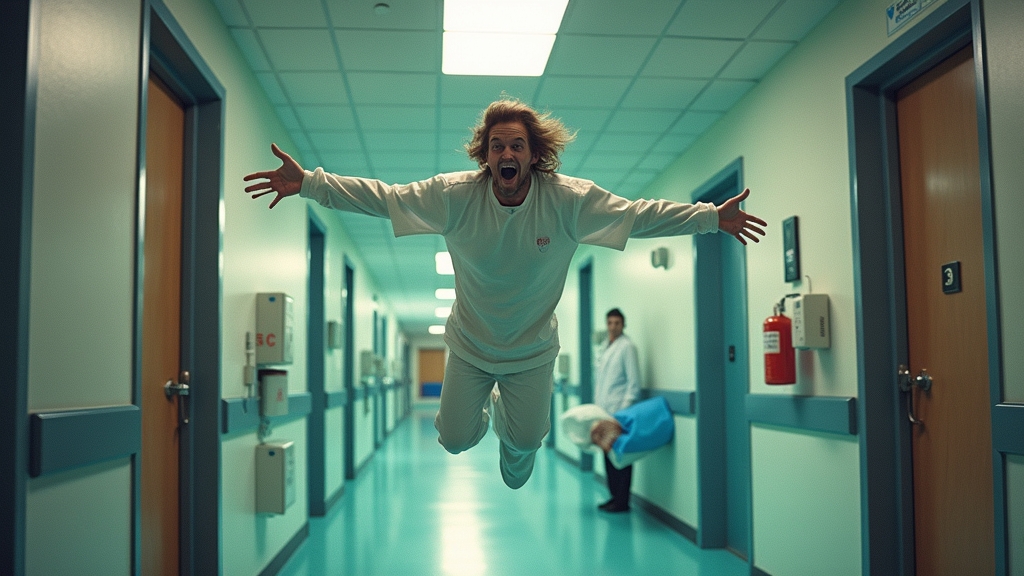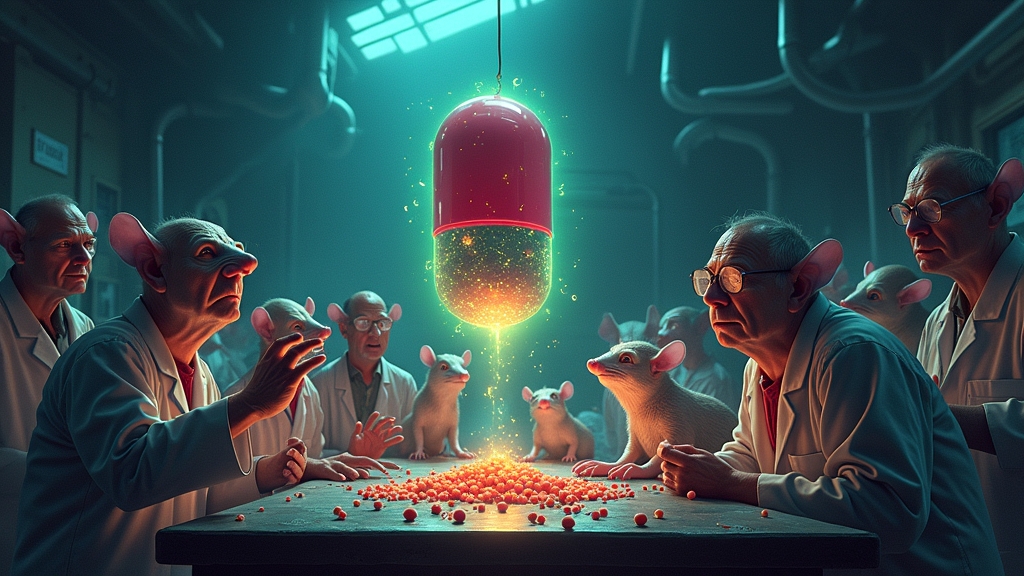HOSPITALS NOW USING SENTIENT STAPLERS TO YEET PATIENTS OUT THE DOOR
In a groundbreaking effort to reduce Britain’s hospital wait times from “eternal purgatory” to merely “soul-crushing,” the NHS is testing a revolutionary new AI system designed to kick patients out faster than you can say “but I still feel sick.”
GOODBYE, HUMANS! HELLO, EFFICIENCY!
The London-based hospital trust has begun implementing what they’re calling a “patient discharge acceleration algorithm,” but what sources confirm is actually just a Windows 95 computer that screams “NEXT!” every three minutes.
“This innovative system can complete discharge paperwork in seconds,” explained Dr. Hastings Kickemout, the hospital’s Chief Bed Clearing Officer. “Previously, doctors wasted precious minutes determining if patients were actually healthy enough to leave. Now, the computer just checks if they’re breathing and has security escort them to the car park.”
SAVING TIME BY COMPLETELY IGNORING PATIENTS
The AI reportedly operates on a sophisticated decision-making framework consisting of exactly one question: “Can this person technically survive outside these walls for at least 24 hours?” If the answer is even a hesitant “maybe,” the system automatically prints discharge papers and a bus schedule.
“It’s f@#king revolutionary,” gushed Health Secretary Wes Streeting while frantically trying to plug the AI system into more hospitals. “We’ve increased our patient turnover by 87% by completely eliminating unnecessary procedures like ‘follow-up care’ and ‘making sure they can walk.'”
EXPERTS WEIGH IN
Professor Penny Pincher from the Institute of Healthcare Efficiency claims the system will save the NHS approximately “a sh!t-ton of money” by reducing average hospital stays from “too long” to “barely adequate.”
“Our previous discharge process required human judgment and compassion,” noted system engineer Dr. Ida Givafuk. “We’ve eliminated those inefficiencies entirely.”
THE PATIENTS SPEAK
“I came in with chest pains, and seventeen minutes later I was in an Uber with a prescription for paracetamol and a hospital wristband they didn’t even bother removing,” reported recent patient Terry Williams. “The computer told me I had a 62% chance of not dying immediately, so here I am!”
FUTURE DEVELOPMENTS
The NHS plans to expand the program to include an automated ambulance dispatch system that asks callers to rate their emergency on a scale from “slightly uncomfortable” to “actively witnessing the light at the end of the tunnel.”
Additionally, the trust is developing a companion AI that can automatically inform family members their loved ones have been discharged by sending texts reading: “Granny’s your problem now. Collect within 30 mins or late fees apply.”
In a statement to concerned medical ethics boards, an NHS spokesperson explained, “Look, the beds are for sick people, not people who are merely ‘still recovering.’ If they can fog a mirror held under their nose, they can recover perfectly fine on their sofa watching daytime telly.”
At press time, the AI had reportedly discharged three doctors, a janitor who paused too long during his shift, and its own server for “taking up valuable space that could house another barely-conscious patient.”




